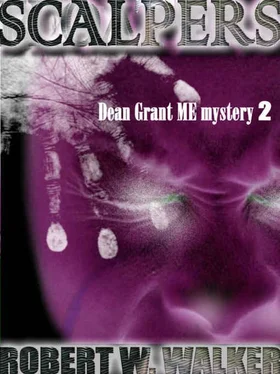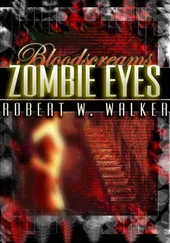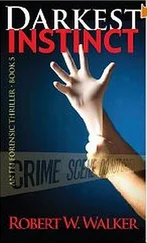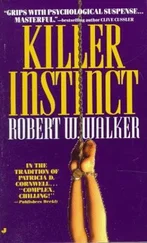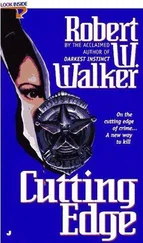"The more I think of it, the more I'd like to take Corman's neck in my hands and break it, snap him like a twig! He's making me look bad in front of my city, my department, and the Mayor."
"But you don't know that he's guilty of anything more than excesses, the time away from the lab, a bit of fun with his judge, and it adds up to sloppy work."
"I won't tolerate it, not in my department. Never have, never will."
"The injunction hasn't helped your disposition."
"I'm working on getting my own injunction that'll overrule his, and when I impound all that evidence, I'll call a press conference, let the people of Orlando decide what to do with Dr. Sydney Corman."
"That's a big step, Chief."
"Bold ... bold's the word ... like my old self."
"Yes, you do like a fight."
"Been a scrapper all my life."
"Yes, I know."
Jake laughed heartily at this, his thoughts on a childhood incident. Another thing he liked about Hamel. Somehow Hamel unlocked the memories of his rough upbringing, which his mind had trundled off to a secret place in his brain like a sad treasure chest to be buried forever within him. Somehow Hamel had found the ephemeral key that unlocked the amorphorous gate which held back both the horrors and the pathos of that childhood which, till now, was blanketed in darkness, kept even from the keeper.
"What are you remembering?” asked Ben Hamel.
Jake laughed lightly again. “A fight ... a fight with my father. He broke my rib."
"Want to tell me about it?"
Jake did. He wanted to tell Ben every detail.
"Might be better than getting an ulcer over Sid Corman."
Jake knew it was the truth. Telling Ben about the nightmare of lost childhood was somehow like a soothing balm these days. A few weeks ago, Jake Hodges would have denied the possibility. He had always hated dredging up the past before, but with Ben, it was a calm and cathartic journey, and he could remain at a safe distance and yet see, really see for the first time, that the terror of those days was not his fault, that the guilt he carried within himself for all these years could be vanquished.
"Go on, Jake...” Hamel's voice was motherly and fatherly at once.
Tearfully, Jacob Hodges began the horror story of his thirteenth birthday.
Hamel sat back, breathed deeply, listening quietly. He was a good listener.
But while listening, Ben Hamel allowed part of his mind to slip away, to the image of Dean Grant. He wondered what Grant's questions over dinner had been hiding, wondered what made Grant tick, and if soon Grant would not return to him with more questions: questions pertaining to Hamel's police patients, or patients he saw in his private practice.
Grant might insist on Hamel's actually revealing privileged information, which Hamel would, of necessity, decline to do. Hamel might declare his confidentiality with his patients, the old but very real doctor-patient relationship. Then Grant would press him, asking him if he knew of any individual with a fetish that might turn him into a hatchet-wielding killer after skin and hair.
Hodges here, for instance, spoke of his nasty father, whose back and chest were matted with ugly hair....
Hamel could think of at least two other patients who had morbid fears and hangups which, in a pinch, might place them into the category of suspect. But Hamel's job was not to second-guess, judge, or condemn his own patients, and Grant would likely respect him a great deal more if he maintained the scruples he had come into the profession with. Besides, Hamel honestly did not think Hodges nor any of his patients was the killer, any more than he believed that Lt. Park was the killer.
Van didn't know about Ian's idea. Ian wasn't supposed to get ideas; Van was—Van had told him so. They argued over whether Ian's dream about children with long-flowing hair had anything to do with the purposes of the Dark One, who had for all these years spoken only through Van. All day in the Florida heat, among the palmettos and moss-covered trees of the reserve bordering on the hidden little place Ian had rented for them, Van had wandered and sat and talked to himself and mulled over the questions.
Van had been given a task to perform, and whether Ian helped or not, he must perform his work for the Dark One.
Bugs and mites and ticks climbed over him as if he were a dog, nestling deep into his hair. Food for the demons, he thought, and moved on. Mosquitoes plagued him, but he had to work out his problems. Ian was beginning to think he could just do as he pleased, coming to him with this notion that the Dark One had gone to him— him —with a sign, telling Van that his plan of gaining a scalp from every nationality, every race, creed, and color was failing! How dare he suggest it? They were far from finished, and his pretty brother knew this, didn't he?
Once again Ian had gone for the daylight hours to his job down in the city. Once again, as always, Van was left alone to wait and ponder, “Alone again, naturally,” as the song said.
He'd have to put Ian in his place.
He'd have to remind him how it used to be.
He'd have to take down the long whip made of the coarsest hair and beat Ian again, beat Ian as their parents once beat Van, to put him in his place. It was what the Dark One ordered. There was no other way, and this was no time to be soft.
Just then a lizard suctioned itself against the tree branch overhead. Van, feeling a pang of hunger and not knowing when he'd get back to the house, or even which direction he'd take to get there, eyed the lizard. Nice skin, he thought as his hand shot out in strike speed, trained to do so from infancy as a survival technique. He had the lizard in his grasp and wrenched it apart.
Moving on through the marsh that turned quickly into swamp, trying to find his way but without especial concern, Van nibbled on the food find, careful to save the skin for tanning.
One art he knew well, that—the art of tanning and curing a skin. He'd learned it from dusty books in the filthy cellar he'd called home for eleven years. He'd also learned taxidermy. Maybe he'd stuff the lizard. One day, if Ian wasn't good, he promised to stuff him. Pretty brothers could be a bothersome thing. Still Ian had provided for him, helped him all these years, and he had returned from the war with all those scalps. Ian was the perfect balance, the lure, and Van was the trap. Like well-matched spiders, they worked together and all went smoothly until Ian started trying to run the show, lying about whispered messages direct from the Dark One, pretending to be clever, more clever than Van.
After all, it had been Van who'd thought of just the right and fitting punishment for their parents, and it was Van who'd brought the Dark One from the lower levels below the cellar all those nights. He knew what his Lord wanted, not Ian.
When Ian returned, he'd tell him so.
There'd be an argument. Lately Ian argued everything. Lately Ian was beginning to sound like a broken record. How smart he was, he'd told Van, to shift the suspicion to the police themselves, and would soon believe the police were irresponsible and stupid and how he laughed at his own so-called achievement. Then, when he told Van about having telephoned the police not once, but twice, Van beat him unmercifully, making of his back a patchwork of blood and flesh.
To this day Ian felt he'd done nothing wrong, that in fact, he had done a sensible thing. Telephoning the police twice!
Regardless, Van knew that Ian was growing in self-importance with each kill. Ian wanted to take more credit. He wanted more ritual time, and to talk directly with the Dark One. So, having been barred this, he was now fantasizing it.
Damn him, couldn't he understand that this was the one important thing in Van's entire, miserable existence? That his work with the overlord gave meaning to his wretched life? How often, how many ways did Van have to explain it to Ian? In the end, Van would become the Dark One, and through Van he would walk the earth as he had not done since the time of Christ.
Читать дальше
